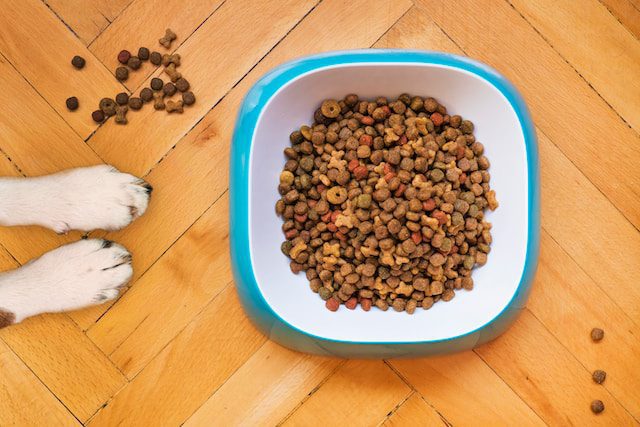As a dog owner, it is important to ensure your four-legged friend is happy and healthy. This is why you need to choose the right food for their needs. With so many options on the market, it can be overwhelming to figure out what's best for your dog. Luckily, there are several tips for choosing the right food for your dog's needs.
Consider Your Dog's Age
Puppies have different nutritional needs than senior dogs. Puppies need dog food with more protein and fat to support their growth and development, while senior dogs may require less protein and fat to maintain their weight and keep their organs functioning properly.
Look at the Ingredients
Your dog's health can be impacted by the ingredients in their food, so it's best to look for high-quality ingredients like whole meats, vegetables and fruits. On the other hand, fillers such as corn and wheat are difficult for dogs to digest, so it's best to avoid food with those ingredients. Some dogs also have allergies to certain ingredients, so it's important to read the label carefully.
Consider Your Dog's Activity Level
If your dog is very active, they may need a higher calorie dog food to support their energy needs. However, dogs that are more sedentary may require lower-calorie dog food to maintain a healthy weight. Be sure to choose a dog food that fits your dog's activity level.
Think About Your Dog's Breed
Different breeds of dogs may have different nutritional needs. For example, large breeds may require a different balance of nutrients to support their growth and development compared to smaller breeds. If you're not sure what's best for your dog's breed, ask your veterinarian for advice.
Consider Your Dog's Health Issues
If your dog has any health issues, their nutritional needs may be different from a healthy dog. For example, a dog with kidney disease may require a lower protein dog food. If your dog has food allergies, they may need a specialized dog food that doesn't contain those ingredients. Make sure to talk to your veterinarian about any health issues your dog may have and how it may impact their diet.
Pay Attention to the Packaging
Thoroughly reading the packaging provides a lot of information about the nutrient content. For instance, you may need to check the label to ensure the dog food has a balance of protein, fat and carbohydrates. You can also learn about the calorie content by reading the label, which helps ensure you're feeding your dog the correct amount.
Consider Wet vs. Dry Food
You also need to choose between wet and dry dog food. Wet dog food adds more moisture to their diet and it prevents urinary tract problems. However, dry dog food can be more convenient and less expensive. Some dogs also prefer the taste and texture of dry dog food over wet dog food. Overall, the type of dog food you choose depends on your dog's needs and preferences.
Consider Dog Food With Fish
If you're looking for a more specific choice, fish dog food is ideal for dogs with food allergies or sensitivities. Fish is a novel protein source many dogs may not have been exposed to before, and this can make it less likely to trigger an allergic reaction. It can also be a good source of omega-3 fatty acids, which supports their skin and coat health. Be sure to choose a high-quality dog food with other beneficial ingredients, such as whole grains, vegetables and fruits. You should also check with your veterinarian to ensure it's a good choice for your dog's needs.
Conclusion
Choosing the right food for your dog's needs is an important part of keeping them healthy and happy. By considering factors such as your dog's age, activity level, breed, health issues and the food's ingredients, you can make an informed decision about what to feed your furry friend. In addition, you want to read the label carefully and consider your wet food versus dry food options.
Ultimately, the best food for your dog depends on their individual needs and preferences, so do not be afraid to try different options until you find what works best for your dog. Finally, consult your veterinarian if you have any questions or concerns about your dog's diet.




